People chronicler. Mikhail Aleksandrovich Sholokhov
M.A. Sholokhov
The father of the future writer was Alexander Mikhailovich, and according to the recollections of the old-timers, he was an extraordinary man — a real rural intellectual in the broad sense of the word. After graduating from the parish school, he worked in the manufactory shop of his father, and then, having saved money, he opened a haberdashery shop. On the purchase and resale of grain, Aleksandr Mikhailovich often visited the Yasenovka estate, where he met the writer's future mother, Anastasia Danilovna Kuznetsova (nee Chernikova). Her family lived in great need - at the end of 1880's, the head of the family passed away, and his only daughter had to work as a local housekeeper from twelve years old. By the way, the girl was distinguished by a natural mind, exceptional diligence and strong character, had a beautiful voice and was beautiful. From her first husband, an elderly Cossack from a nearby village, she gave birth to a girl. However, without suffering humiliation and beatings, after the death of a daughter from scarlet fever, Anastasia Danilovna returned to Yasenovka for her previous job. Sociable and lively, always smartly dressed, Alexander Sholokhov made a pleasant impression on her, and after a while she agreed to move in with him to his house in Kruzhilin.
It was on this farm, referring to the old Cossack village of Veshenskaya, 24 in May 1905 their son was born, who was named Mikhail. Anastasia Danilovna and Alexander Mikhailovich lived unmarried, in connection with which the future writer, up to eight years old, bore the name of his mother’s first husband, Kuznetsov, and was considered a Cossack son. Sholokhov's parents married only in 1913, when the first husband of Anastasia Danilovna died. Since then, the child took the name of the father. And although Michael stopped being considered a Cossack, he grew up in a Cossack environment and considered himself an integral part of this world all his life.
The boy’s childhood passed in the farm Kruzhilin, lying between the rivers Chir and Don. One of Sholokhov’s contemporaries wrote: “From birth, Misha breathed marvelous steppe air over the vast expanses of the steppe, the hot sun scorched him, the dry winds sintered his lips ... And the mowing in the loan, and the hard work of plowing, sowing and harvesting wheat laid the line for the line in his appearance ... On the dusty, overgrown streets he played with peers-Cossacks ... ". Alexander Mikhailovich wanted to give his son a good education, and in 1911 he invited home a well-known teacher in the village, Timofei Mrykhin, who taught Misha six-year-old diploma. For six months, the boy successfully mastered the program of the first year of study, and at 1912 he entered immediately into the second grade of the Karginsky parish school. Unfortunately, in 1914, Mikhail started having eye problems, and Sholokhov Sr. took him to the Moscow Eye Clinic. After being cured, the future writer continued his studies in the ancient capital of Russia in the preparatory class of the private male gymnasium named after Grigory Shelaputin, where the emphasis was on the study of the humanities, as well as modern and ancient languages. A year later, his parents transferred Mikhail to the Bogucharovskaya gymnasium (Voronezh province), where he spent three years studying the Russian language and literature, mathematics and physics, history and geography, natural history and the Law of God. It is curious that during this time his mother Anastasia Danilovna, in order to read her son’s letters, independently learned to read and write.
Sholokhov’s training was interrupted by revolutionary events. In 1918, he returned to the Don to his parents and some time later he was among the students of the Veshenskaya mixed gymnasium. It should be noted that during his years of study, Mikhail Alexandrovich read a lot and with enthusiasm. He himself said: “He loved, far away from his eyes, to sit over a book. At such moments, no one saw me, heard, searched, and it was in vain to call me. ” The books of foreign and Russian writers, especially Leo Tolstoy, made a special impression on him. His father, well versed in philosophy and adoring Russian classical literature, gathered a wonderful library, and in his house there were always fresh magazines and newspapers. Subsequently, the biographers of Sholokhov came to the conclusion that the inner world of the writer was formed precisely under the influence of Alexander Mikhailovich. During these years, Michael began to try to force in prose and poetry, writing the first stories and humorous scenes.
He did not succeed in finishing the full gymnasium course - the Don became the arena of the most severe class struggle. In the summer of 1918, the Upper Don was taken by the White Cossacks, and at the beginning of 1919, the Red Army troops entered the area of the farm where Mikhail lived. In the spring of the same year, the infamous Veshenskoye Uprising broke out. These tragic events took place in the eyes of fifteen Sholokhov. At the height of the uprising, he was in Rubezhnoye and saw both the panicky retreat of the rebels and the regular arrival of the Red Army in September. By the end of 1919, the White Cossacks crushed near Voronezh were finally expelled from the headwaters of the Don, and in 1920 the Sholokhov family moved to the village of Karginskaya. Not wanting to stay away from the events, the young man took an active part in the development of Soviet power in his small homeland. At the beginning of 1920, Sholokhov worked as a clerk on the executive committee of the village and at the same time participated in the work of the local youth drama circle as the author of the plays and the performer of comic roles. In the same year, the young man, having worked for some time as a teacher in the elimination of illiteracy among the inhabitants of the village of Latyshevo, got a job as an employee in the village revkom. In May 1922, having graduated from Rostov in the city of short-term courses of food inspection, the future writer was sent to the village of Bukanovskaya to take the place of the village inspector. It was in this place that a young man met Maria Petrovna Gromoslavskaya. Maria Petrovna was born in 1902 in the family of the village chieftain and studied at the Diocesan Ust-Medveditsk school. After the beginning of the Civil War, the girl worked for some time as a teacher in her native village, and then got a job as an office clerk with the pro-commissioner Sholokhov. The young man was captivated by the unusual beauty of Maria Petrovna and her strong character. The girl answered him affectionately, and in January 1924 they got married.
Afterwards, Mikhail Alexandrovich wrote about his work: “From 1920 I roamed the land of Don Prodrabotnik. Chasing gangs, and gangs chasing us. I had to be in bindings, however, after days, everything is forgotten today. ” By the way, there is a story about how Sholokhov once along with his entire food squad was captured by Nestor Makhno. Mikhail Aleksandrovich was waiting for the execution, but after talking with the dad because of his young age or in connection with the intercession, the Cossacks were released. However, at the next meeting Makhno promised the future writer a gallows. In the same years, in the life of Sholokhov, another incident occurred - serving as a food detachment, he arbitrarily reduced the taxation of the residents of the district. The usual thing, but it was on Sholokhov denounced. He was again threatened with execution for “abuse of office”, but two days later, awaiting death, the young man was released. Mikhail Alexandrovich was obliged by his salvation to his father, who made a solid pledge and presented a new metric to the court, according to which the young man was listed as fifteen (and not nearly eighteen).
When the civil war ended, and with the gangs who ravaged their native land, it was over, Sholokhov in October 1922 moved to Moscow, where he thought about continuing his studies. However, Mikhail Alexandrovich did not work for the evening branch of the workers' school - they were taken there only in the direction of the Komsomol by workers from the factory or production experience. In subsequent years, without stopping to engage in self-education, Sholokhov worked as a statistician, a loader, a teacher in a lower school, a bookkeeper, a clerical worker, a bricklayer. It is these days, according to the memoirs of the writer, he had a "craving for literary work." Starting with 1923, Sholokhov’s stories began to be published in various Komsomol magazines and newspapers. Mikhail Alexandrovich said that, having received his first fee, he bought herring on it. At home, Maria Petrovna cooked potatoes in a pot, and the young people staged a feast.
One by one, Moscow magazines published about thirty stories by an aspiring writer. They also compiled his first books, Azure Steppe and Don Stories, in 1926. There was nothing unreliable in these stories - everything was tried, seen, passed through the heart by Sholokhov himself. Mikhail Alexandrovich brought to literature the cruel and harsh truth about the Civil War. The class struggle in his portrayal is this dissecting families, separating fathers and children from their war against theirs. The first to appreciate and support the young man’s stories was the famous Soviet writer Alexander Serafimovich in those years.
In 1926 Sholokhov returned home to Don. At this time he was completely absorbed in thoughts of creating an epic work about his native land. Embraced by this idea, Mikhail Alexandrovich began working on a novel, now known as The Quiet Don. Later Sholokhov said: “I started writing a book in 1925. And at first I did not think to deploy it so widely. Attracted the goal to show the Cossacks in the years of the revolution. I wrote a few sheets and felt that something was wrong ... It was not clear why the Cossacks participated in suppressing the revolution? What were the Cossacks? What is the area of the Don Army? Then I quit the job I started, and began to reflect on a wider work. ” The first two books of a large-scale epic novel covering the years of the First World War, the 1917 revolution and the emergence of Soviet power in the Don, were published in Krasnaya Novy magazine in 1928. And almost immediately the author was accused of plagiarism. Opponents of Mikhail Aleksandrovich were embarrassed by the young age of the writer who created such a large-scale work, demonstrating an excellent knowledge of the life of the Don Cossacks, of the localities on the Don and military events. Indeed, Mikhail Alexandrovich was young, but at the same age Lermontov wrote his famous “Borodino”. The knowledge and understanding of the Cossack life, life and the psychology of the people, its customs and customs - all this was for Sholokhov from childhood to his family and friends. In addition, Mikhail Alexandrovich made many trips to the surrounding villages and farms, recording the memories of the participants of the revolution and the First World War, as well as the stories of old men about the life of the Cossacks of those years. Accumulating local folklore, Sholokhov visited the archives of Rostov and Moscow in order to study magazines and newspapers, special military literature, old books on the history of the Cossacks. The grandson of the writer Alexander Sholokhov said: “The most unexpected reports came to the annual“ Sholokhov Readings ”. Once astronomers made an application. After analyzing the Sholokhov texts from their point of view, they made sure that the writer Venus got up there and then, where she actually got up that day and in that place. And the moon was, as in a novel, at damage. And once a thorough geobotanical study was presented. The description of the vegetation, steppe and soil where the grandfather lived completely coincided with excerpts from his books. The same with folklore, popular names, dialects ". By the way, a special commission was created at 1929 to clarify this issue on the instructions of Stalin, which, after examining the submitted manuscripts, eventually confirmed the authorship of Mikhail Alexandrovich. Despite this, charges of plagiarism haunted the writer throughout his life. In 1999, after many years of searching, employees of the Institute of World Literature of the Russian Academy of Sciences found the manuscripts of the first and second books of The Quiet Don, which were considered lost. The graphological, identification and textual examinations carried out have certified their authenticity, having solved the problem of authorship of Sholokhov with scientific validity.
In April, 1928 Serafimovich, paving the way for readers through the congestion of critics and publishers, wrote: “It’s not true that he has people painted, written out ... Everyone has his own eyes, his nose, his talk, his wrinkles. Everyone hates his own way, and love is sparkling and unhappy in his own way ... To endow each character with personal features, to create a unique inner human system is a great talent ... ". Among his contemporaries, Silent Don enjoyed fantastic success, and in 1930, a film was made about the work that strengthened his fame as a writer.
In 1932, the third book of The Quiet Don was completed, dedicated to the Veshensky Uprising. The truth about the story and the actions of Trotsky in the novel was ruthless. The writer well described the excesses shown in relation to the Cossack-middle peasants and resulted in an uprising in the rear of the Reds, which, in turn, led to the defeat on the Southern Front and the attack of Denikin. The third part of the novel in the press was suspended, and Sholokhov himself, at the end of the work on the book, was accused of “White Guard”. In particular, it is known that Heinrich Yagoda - the head of the GPU - said about the writer: “But he is still a counterclave. The Quiet Don is closer to white than us. ” Nevertheless, the novel received the personal approval of the leader, and Sholokhov himself was nicknamed "Stalin's favorite." Joseph Vissarionovich really sympathized with Mikhail Alexandrovich, even though the writer - one of the few - was not afraid to tell the truth to the leader. In the thirties, Sholokhov, in personal meetings with all frankness, told Stalin about fierce hunger in the lands of the Don, about how "both adults and children eat what they eat, starting with oak bark and ending with carrion."
In 1928-1929, complete collectivization started in the villages. In 1930, Mikhail Alexandrovich enthusiastically wrote to the editor of the publishing house “Moscow Worker”: “I compose a new novel, like the Cossacks of the Kyshenia are part of collectivization, and how they live on collective farms ...”. The collective farms, by the way, were taking the first steps at that time, and Sholokhov sincerely believed in the success of this undertaking. However, his plans were distorted by reality. At 1931, Mikhail Alexandrovich continued to write his novel, but his messages to Moscow abruptly changed their tone: “I go around the constituencies, watch and grieve with my soul ... You should see what is happening. They shake their fists, and the middle peasants are already crushed. The people are going wild, the poor are starving, their mood is depressed ... The sowing wedge is decreasing, the confiscated cattle are dying on stanichnyh bases ... ”. The letters of Sholokhov drew terrible pictures of collectivization on the Don, and not closely resembling the idyll of “Raised Virgin Land”. It is curious that one of the writer's addressees was Joseph Vissarionovich himself. The messages of Mikhail Alexandrovich to the leader abounded with the horrors of the famine and a description of torture, abuse, beatings, with the help of which bread was seized. Stalin reacted favorably to his appeals - he answered the writer with a letter and telegrams, and also sent a train with grain to Don.
In 1932, the country finally found out about “Raised virgin soil” - in early January, Pravda published an excerpt from the book. However, the October magazine rejected the final manuscript, and Sholokhov himself said on this subject: “The editors demanded that I withdraw the chapters on dekulakization. All my arguments were strongly rejected ... Then I decided to turn to Stalin. After reading the manuscript, Joseph Vissarionovich said: “What kind of confusion are we sitting there? They were not afraid to dekulakize the fists - why are they now afraid to write about it! The novel needs to be printed. ” Nevertheless, the vigilant publishers persuaded the author to change the name of the work - instead of a biting “With sweat and blood”, there was a pompous “Raised virgin”. Sholokhov wrote bitterly: “To this day I look at the name with hostility ... The terrible name, it is already troubled. Unpleasant. After the publication of the novel, depicting collectivization with all its advantages and disadvantages, bright expectations and nightmarish reality, joy and troubles, failures and accomplishments, without exaggeration, became the most famous piece in those years in the country. Subsequently, the book was declared a perfect example of socialist realism literature, mountains of articles were written about it, it became mandatory for studying at school, it was passed on to the opera, it was filmed twice, played back countless times in the dramatic scene. For her, the writer was awarded the highest award of the country - the Lenin Prize. It is curious that when Sholokhov learned about the award, he immediately sent a telegram home: “... I am glad to report to the dear villagers that the award will be entirely transferred to the construction of a new school, instead of the one where I once studied. I hug everyone. Your Sholokhov.
The growing fame helped the writer to continue work on The Quiet Don, the publication of the third book of which was detained. Mikhail Aleksandrovich turned to Gorky and, with his support, obtained permission from Joseph Vissarionovich to publish this book without cuts. And in 1934, the writer completed the fourth and final book, covering an eventful segment from the summer of 1919 to spring 1922. But for unknown reasons, Sholokhov did not publish it, having decided to completely rewrite it. It is likely that this thought was adopted in connection with the tightened ideological pressure - in the last book of The Quiet Don there are many pro-Bolshevik declarations, often contradicting the plot and the structure of the novel. The fourth book was completed in December by 1938, worthily completing the long-term work of an outstanding writer.
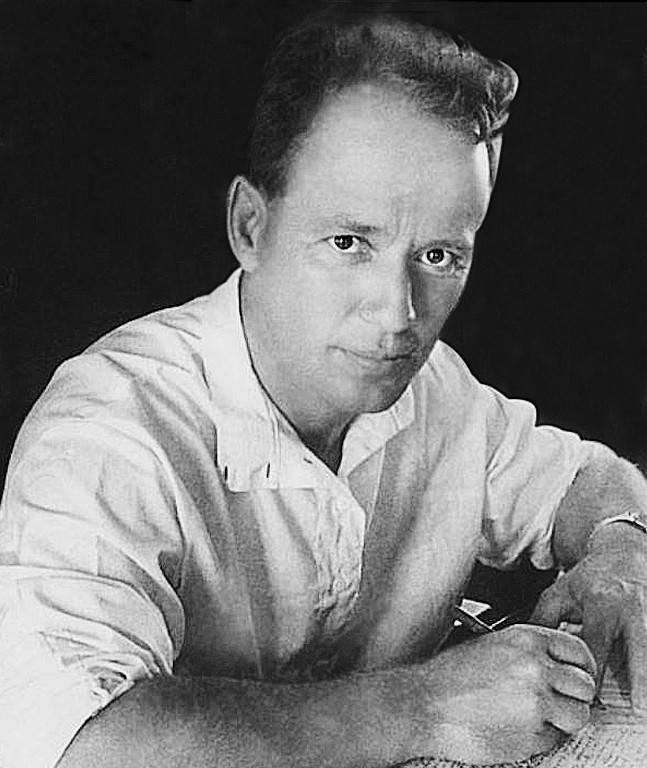
With 1932, Sholokhov was a member of the Communist Party, and at 1934 he took part in organizing and holding the First All-Union Congress of Soviet Writers, at which he was elected to the board of the Union of Soviet Writers. Over the years, the activities of Mikhail Alexandrovich became wider - he was repeatedly elected to the Rostov regional executive committee, and he paid much attention to raising the culture of local collective farms. Sholokhov, as a rule, was engaged in writing at night. Alexander Serafimovich wrote: “Visitors were knocking down on him to him. Here, workers and collective farmers, military and students, tourists and foreigners, children and journalists, musicians and writers, poets and composers - all come on horseback, on cars, on ships, on boats, fly on airplanes. Sholokhov accepts everyone, speaks with them, explains, helps, directs ”. A historian and traveler Ivan Danilov said: “My father arrived in Veshenskaya in the summer of 1939. He arrived late at night, and the first thing he saw in the village, plunged into darkness, was a burning window in a house. He spent the night right in the cabin, and in the morning he found out that Sholokhov lived in the house ... And how many days he was there - out of interest he went out to look every night - his window was always lit ... ".
In 1939, Mikhail Alexandrovich was elected a full member of the USSR Academy of Sciences, and was also awarded the Order of Lenin. 23 June 1941 Mikhail Alexandrovich sent a telegram to Moscow with a request to transfer the State Prize awarded to him for the novel “Silent Don”. Transferring money, a recognized writer went to the front. Working as a war correspondent for the Red Star and Pravda, during the war years Sholokhov visited the Smolensk sector of the Western Front, the South-Western and Southern, Stalingrad and Belarusian fronts. He experienced many horrors during this time. In winter, the 1941-1942 bomber, on which Mikhail Alexandrovich flew, crashed during a forced landing. Miraculously, the surviving writer spent several months in the hospital, his daughter recalled: "My father was diagnosed with the displacement of all internal organs, but he refused a long inpatient treatment." After being discharged from the hospital, Mikhail Alexandrovich went home to Veshenskaya, and on July 8, 1942 took part in the emergency evacuation of his family. Alexander Sholokhov told about this: “The Nazis bombed the village, and people left in a hurry - women, sixteen children and a grandfather with us. As soon as the family drove off, a bomb hit the house. The manuscripts were scattered, but the worst thing was that the mother of Mikhail Alexandrovich, Anastasia Danilovna, died. Leaving everyone, my grandfather returned to bury her ... All the way the adults were terribly scary, and my grandfather played with children, joked and invented some stories, so both my father and all the uncle-aunt considered the retreat trip the most fascinating journey in the world . This is all Sholokhov. Full of vitality and all his works. You close the book with a feeling - you need to live. ”
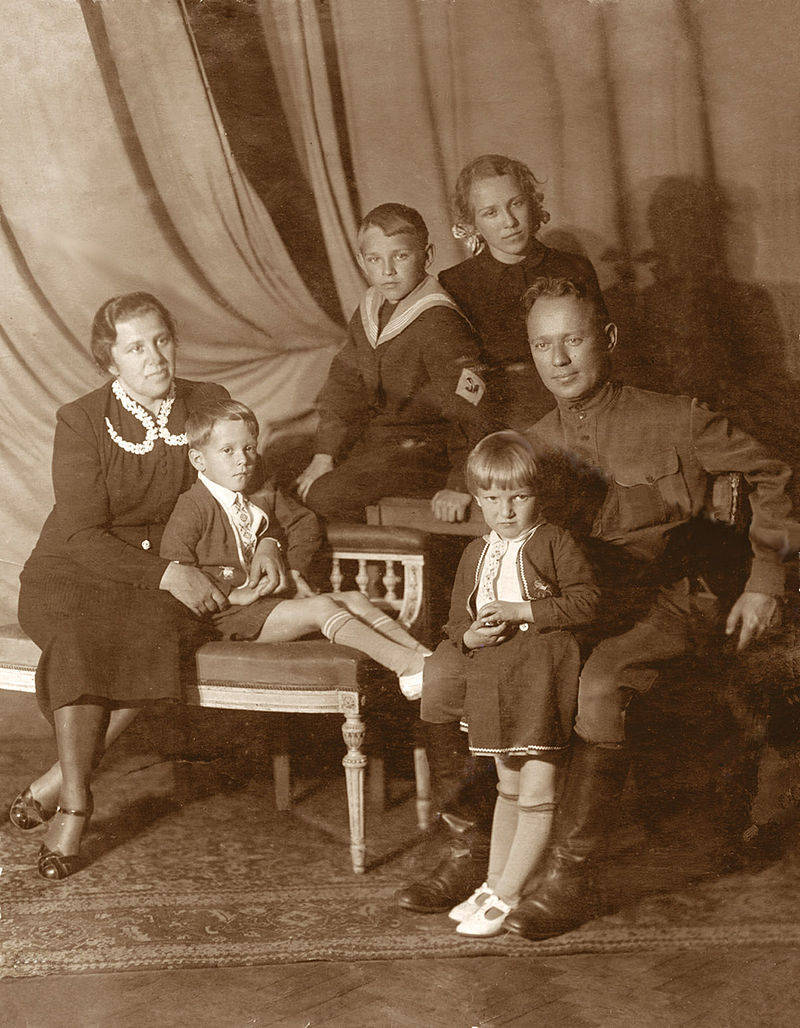
The family of M. A. Sholokhov (April 1941). From left to right: Maria Petrovna with her son Misha, Alexander, Svetlana, Mikhail Sholokhov and Masha
At the same time, Sholokhov began writing his new book, “They Fought for their Homeland.” The first chapters of it were published in 1943 in Pravda. The novel described the harsh trench life of a regimental soldier fighting on the Don. Sholokhov himself recalled: “After a contusion, I lingered in Moscow, and Stalin invited me to his place. There were also members of the Politburo. We had a conversation. Iosif Vissarionovich praised my story "The Science of Hate," and then said: "The Book of Remarque" On the Western Front without Change "came out ten years after the end of the war. A novel about the current war need to write now. Despite the defeat of the enemy near Moscow, the situation on the fronts remains difficult. I understand that it is difficult to work in the current conditions, but you try ... ". Here I am from the forty-second year and try ... About the Russian soldiers, about their courage, about their Suvorov qualities have long been known to the world. However, I want to reveal in the book the new qualities of the Soviet soldiers who elevated them so much during the war years. ”
Victory Day was for the writer the most joyful holiday. One of his relatives recalled: “He rushed to my apartment at night, holding a piece of red matter in his hands. He told me to write a slogan about victory on it. I did. There was no end to our joy. ” Despite the requests of the publishers to finish the novel “They Fought for the Motherland,” Sholokhov himself was in no hurry with this, believing that it was obviously unworthy of his own level. And when some chapters from a book conceived as a trilogy were printed with abbreviations, the author lost all creative inspiration. Mikhail Aleksandrovich repeatedly returned to his war novel in the fifties and sixties, but the work remained unfinished. When the writer talked about this novel in conversations with journalists, he said: “I remain indebted to the dead and alive,” and shortly before his death, he said: “He didn’t fulfill his duty to the end.” Nevertheless, according to the unfinished novel “They Fought for the Motherland” in 1975, Sergey Bondarchuk made a film of the same name thundering all over the country with the participation of domestic movie stars: Vasily Shukshin, Vyacheslav Tikhonov, Georgiy Burkov, Yuri Nikulin and Innokenty Smoktunovsky.
After the war, Sholokhov tried to stay away from the "powerful of this world." Refusing the post of general secretary of the Union of Writers, the writer finally moved to Vyoshenskaya. The “thaw” that ensued after the war, Mikhail Alexandrovich, met with the story “The Fate of a Man”, in which he dealt with the taboo topic about the fate of prisoners of war. In his work, the author with amazing skill through the fate of a single person - the Russian soldier Andrei Sokolov - portrayed the entire era in all its drama and complexity, initiating a new stage in the development of Russian military literature. Published the story "The Fate of a Man", which Hemingway, by the way, called the best story of the twentieth century, was in 1957 in the New Year's numbers of Pravda.
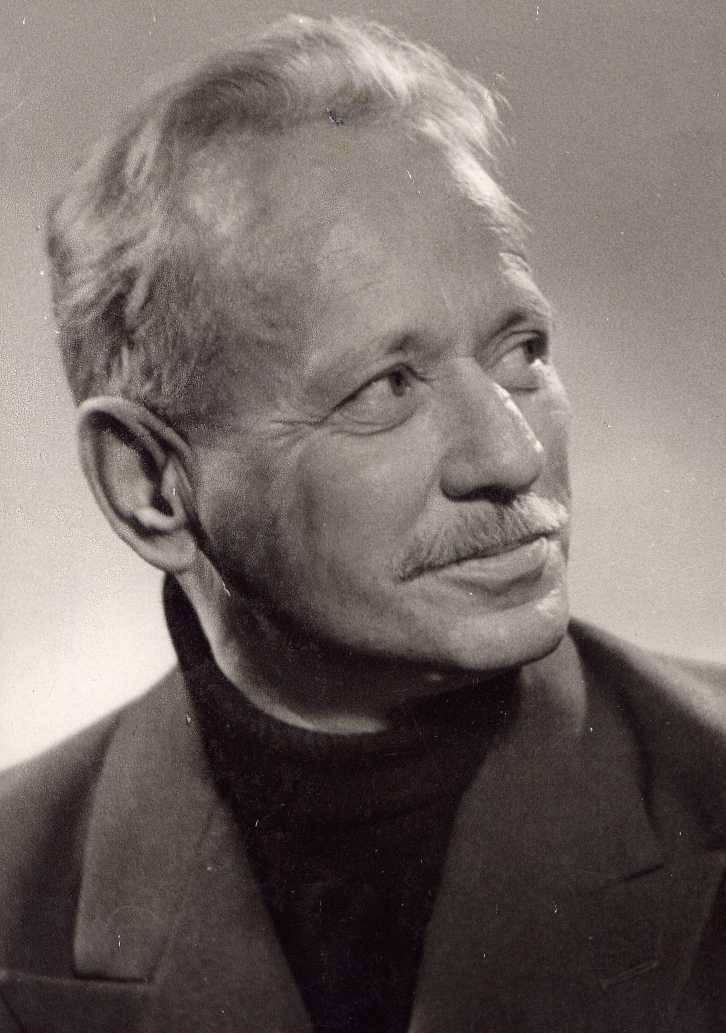
It is necessary to tell about the Sholokhov man. The grandson of the writer said: “My grandfather was in communication as simple as he was full of immense, complex, but obvious depth. Do not think for pathos, but I had a feeling that you communicate with a sage. More than once I watched as the people invested with power next to him turned into boys. Not because the grandfather suppressed. On the contrary, it was open to all. And it just conquered, everyone understood that this person is completely understandable. ” And as a countryman, and as a deputy of the Supreme Soviet, Mikhail Alexandrovich showed concern for the inhabitants of his land. One of the old residents of the farm told “Sholokhov often took a boat from me to fish. In the evening, putting it in place, thanked and popped money. Once this picture was seen by my mother-in-law and asked: “And how much do you get?” Mikhail Alexandrovich smiled: “How much you need, mother, I get so much” ... And I think so - he had no money. He gave all his prizes to the construction, then to the defense. And how many different petitioners came to him! Especially when the war ended. And I must say, he helped a lot. And clothes, and money. " Mikhail Alexandrovich had a rather heterogeneous, in the opinion of many, surroundings from local residents. On this occasion, the writer's grandson said: “Indeed, the selection here, at first glance, was absent. In the "inner circle" it included police, old fishermen, drivers, secretaries of district committees. However, in reality, this "selection" was available. They were all excellent storytellers. And grandfather, by the way, is an excellent listener. Although those like him, the narrators, I have not met. He had a special, concise manner of narration. He spoke very slowly, managing to fit everything in one phrase. ... Grandpa had a great sense of humor. It is difficult to imagine a meeting with him, where he would not throw something out. He liked to poke fun, but it is a shame - never. Nobody was waiting for him to podnachki, only support. "
Sholokhov was a wonderful archer and loved to go hunting. Another of his passion throughout life was fishing. Mikhail Aleksandrovich also loved Russian poetry, knew by heart hundreds of poems by various authors. He especially liked the works of Pushkin, Bunin, Fet and Tyutchev. He never demonstrated his unique memory, but in conversations and intimate conversations he often recalled this or that poem. In family life, the writer was also happy. Mikhail Alexandrovich and Maria Petrovna lived what is said, soul to soul, and together met a golden wedding. Often, the guests were fascinated by the performance of the folk songs of the Sholokhovs' spouses, while Mikhail Alexandrovich spoke kindly to Maria Petrovna: “Make ...”. And together they sang ancient songs. They had four children, many grandchildren and great-grandchildren. The eldest daughter Svetlana became a philologist, the eldest son Alexander - Candidate of Biological Sciences, a researcher at the Nikitsky Botanical Garden in Yalta. The second son, Mikhail, also a candidate of philosophical sciences, graduated from the Moscow State University biology faculty, and the youngest daughter, Maria, a philologist, worked at Sovremennik publishing house.
In October, at the All-Union Conference of Peace Supporters, Sholokhov was elected to the Soviet Peace Committee, and in May, 1959 was awarded an honorary doctorate from the University of Leipzig. In October, 1965 Mikhail Alexandrovich was awarded the Nobel Prize in Literature. By the way, he became the only Soviet writer who received this prestigious award with the approval of the party authorities. Back in 1965, when nominating the Pasternak Nobel Prize, the Soviet leadership told the committee that Boris Leonidovich "does not use the recognition of Soviet writers as a writer." Of course, the Nobel Committee did not heed the "requests" - Pasternak received an award from which he was forced to refuse at home. Later, in one of the interviews, Mikhail Alexandrovich called Pasternak a brilliant poet, adding: “Doctor Zhivago” simply had to be published. ” It is curious that Sholokhov himself at the Nobel Prize ceremony did not bow to the king of Sweden who presented him with the award, thereby violating the etiquette that had been formed over the years. It is not certain for certain whether Mikhail Alexandrovich did this intentionally, in order to demonstrate to the whole world that the Cossacks are not going to bow to anyone but their people, or were simply not informed about this detail. Most of the money received, the writer transferred to the construction of a new school. About where the rest went, the writer's daughter Svetlana Mikhailovna said: “With the money of Nobel we, the children, saw the world. Father spent them to show us Japan and Europe. ... By car, we traveled far and wide across England, France and Italy. ”
In 1966, Mikhail Alexandrovich took part in the trial of Daniel and Sinyavsky, the writers accused of anti-Soviet activities. By the way, before that Sholokhov either avoided similar campaigns, or, on the contrary, tried to do everything possible to help his colleagues. It is known that he interceded with Joseph Vissarionovich for Akhmatov, and after fifteen years of oblivion her book was published. In addition, Sholokhov saved Akhmatova's son Lev Gumilyov and son Andrey Platonov, unsuccessfully trying to save one of the creators of Katyusha Kleimenov, rescued Soviet actress Emma Tsesarskaya from the camps. However, despite requests to stand up for Daniel and Sinyavsky, Mikhail Alexandrovich at the XXIII Congress of the CPSU delivered an accusatory speech against writers who published a number of anti-Soviet works abroad.
In the last years of his life, Sholokhov was sick a lot, but he was surprisingly steadfast. He was diagnosed with diabetes, he suffered two strokes, and then doctors discovered throat cancer in the writer. At the end of 1983, Mikhail Alexandrovich flew to Moscow for treatment, which, unfortunately, did not bring results. His attending physician wrote: “It is impossible to operate, and it is impossible to save. Only relieved the suffering, and they were heavy. However, Mikhail Alexandrovich patiently and courageously endured them. When he realized that the disease was progressing, he decided to return home. The last week in the hospital, I didn’t sleep much, I "went into myself." ... He called Maria Petrovna, put his weakened hand on her hand and said: “Marusya! We are going home ... I want you to feed me homemade food ... As before ... ". In late January, 1984 Sholokhov returned to Veshenskaya stanitsa. The great writer passed away a month later - February 21. Shortly before his death, he said: “I want my works to help people become a purer soul, awaken in them the desire to fight for the ideals of humanity’s progress and humanism. If in some measure I succeeded, then I am happy. ”
According to the sites http://www.sholokhov.ru and http://feb-web.ru.
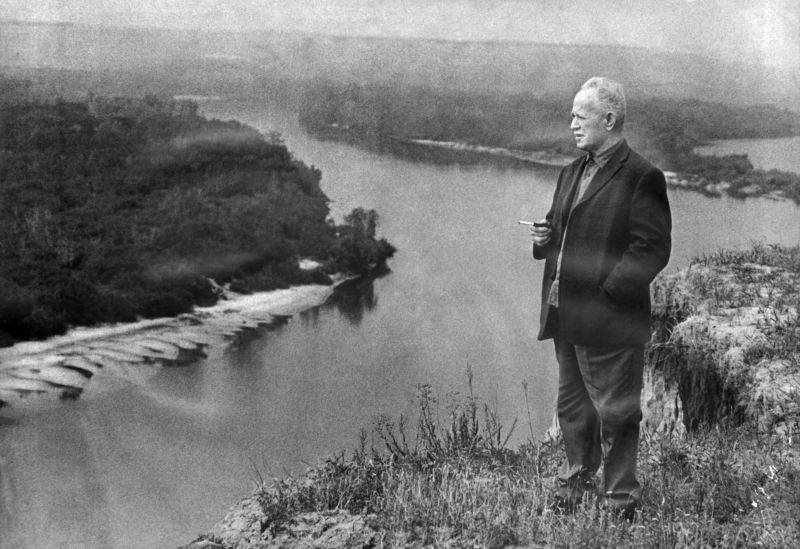
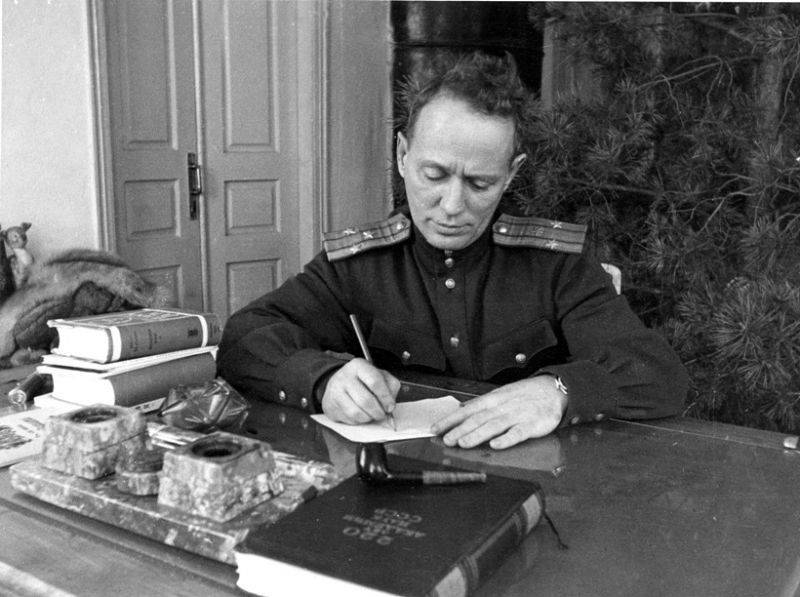
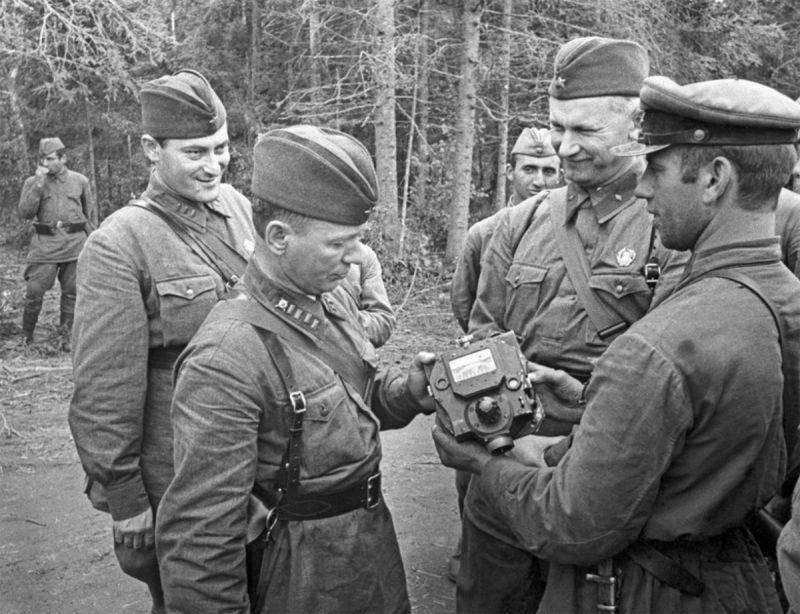
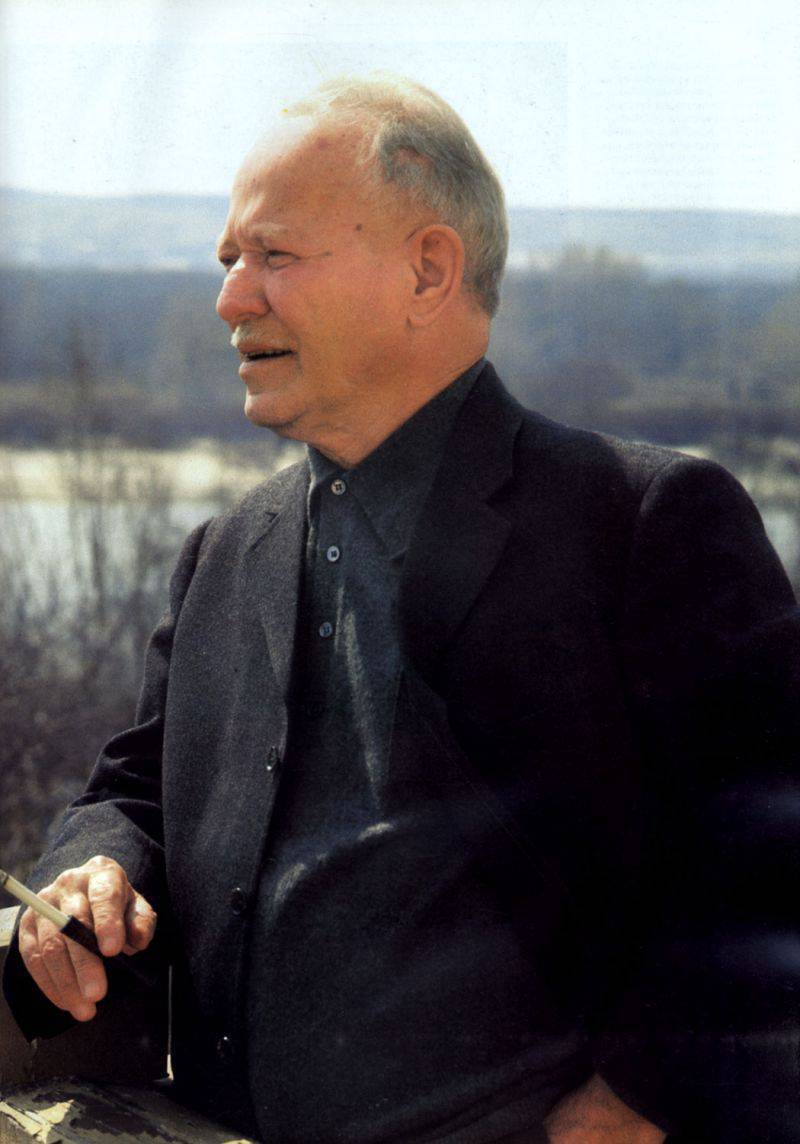
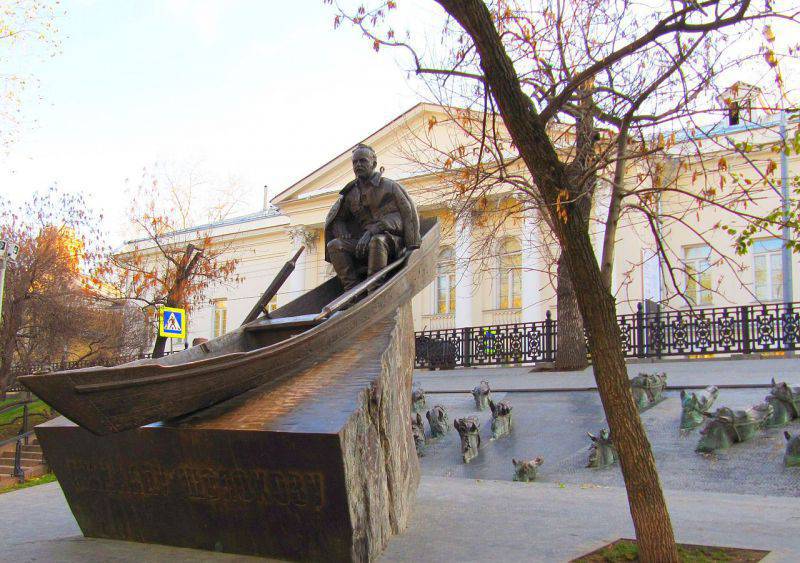
Information